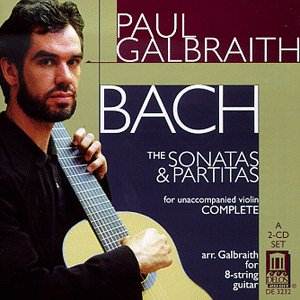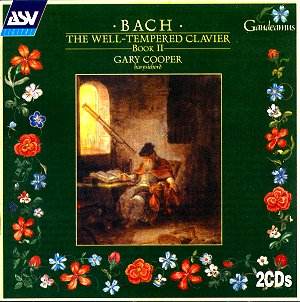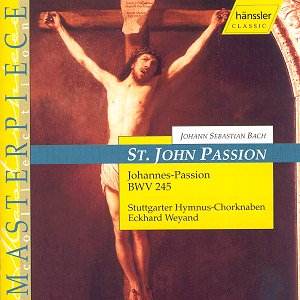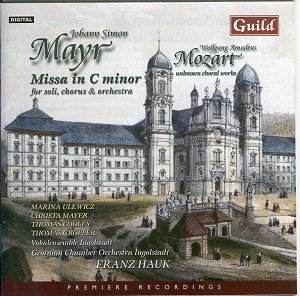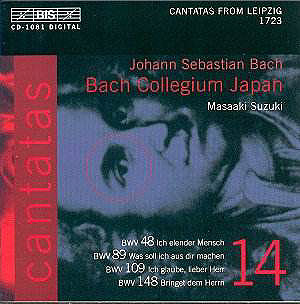 Composer: Johann Sebastian Bach
Composer: Johann Sebastian Bach
Works: Cantatas: “Bringet dem Herrn Ehre seines Namens,” BWV 148; “Ich elender Mensch, wer wird mich erlosen,” BWV 48; “Was soll ich aus dir machen, Ephraim,” BWV 89; “Ich glaube, lieber Herr, hilf meinem Unglauben,” BWV 109
Performers: Midori Suzuki (soprano), Robin Blaze (alto), Gerd Turk (tenor), Chiyuki Urano (bass), Bach Collegium Japan, directed by Masaaki Suzuki
Recording: Chapel of Kobe Shoin Women’s University, Japan, 22–25 February 2000
Label: BIS CD-1081
The cantatas of Johann Sebastian Bach represent a confluence of theological depth and musical innovation, crafted during a period of intense creativity in the early 18th century. This recording, part of Masaaki Suzuki’s distinguished cycle, presents four cantatas from the 1723 Leipzig cycle, showcasing Bach’s ability to weave intricate musical tapestries that reflect the liturgical calendar and the human condition. These works, composed for specific Sundays after Trinity, provide a glimpse into Bach’s profound understanding of the interplay between scripture and music.
Masaaki Suzuki’s direction is marked by a keen interpretative insight that allows the text to resonate deeply within the music. The opening cantata, BWV 148, exudes a celebratory spirit, underscored by the brilliant trumpet that punctuates the orchestral texture. The confident opening chorus sets the tone, with Gerd Turk’s tenor aria following in a fluid and expressive manner, beautifully complemented by a dancing violin obbligato. The clarity and precision of the Bach Collegium Japan’s instrumental accompaniment serve as a testament to Suzuki’s meticulous preparation, showcasing an ensemble that is both technically proficient and stylistically aware.
In contrast, BWV 48 illustrates a more somber reflection on sin and redemption, aligning with the gospel narrative of Christ healing a paralytic. The chorus embodies a poignant mixture of lament and hope, captured in the restrained yet expressive delivery of the ensemble. The unusual structural choice to insert a chorale after a dramatic recitative adds a layer of introspective depth, allowing Robin Blaze to shine in the subsequent arias, where his agility and responsiveness to the text are particularly striking. The emotional weight of this cantata is palpable, with Suzuki capturing Bach’s nuanced commentary on the human experience.
The third work, BWV 89, introduces new solo voices, with Chiyuki Urano’s light bass aria opening the cantata. While Urano’s performance is technically sound, it lacks the expressive depth found in Blaze’s recitative and aria, highlighting a slight imbalance in vocal color and character. Midori Suzuki’s soprano, though light, offers a poised rendition of her brief aria, showcasing an exquisite oboe obbligato that elevates the moment, suggesting a missed opportunity for more extensive engagement with her voice throughout the program.
The recording culminates with BWV 109, another exploration of healing, where the opening chorus elegantly alternates between the full choir and soloists. Gerd Turk’s execution of the tenor aria is particularly noteworthy; the broken rhythms and complex harmonies demand not only accuracy but also interpretative eloquence, an achievement that Turk delivers with apparent ease. Robin Blaze’s alto aria, imbued with tranquility, perfectly complements the tenor’s intensity, affirming the collaborative synergy among the performers.
Sound quality throughout this recording is exemplary, captured with clarity and warmth that enhance the listener’s experience. The engineering allows for a balanced soundstage, where the interplay between vocal lines and instrumental textures can be appreciated fully. The accompanying notes are informative and stimulating, providing insights into Suzuki’s interpretative choices and the historical context of the works, enriching the listener’s understanding.
This collection of cantatas stands as a testament to Bach’s unparalleled capacity for emotional and structural complexity, brilliantly realized by Suzuki and his ensemble. Each performance demonstrates an intuitive grasp of the multifaceted nature of Bach’s music, resulting in a recording that not only honors the tradition but also invites contemporary listeners to engage deeply with these timeless works. A distinguished release that will resonate with both seasoned aficionados and those new to Bach’s sacred repertoire.
